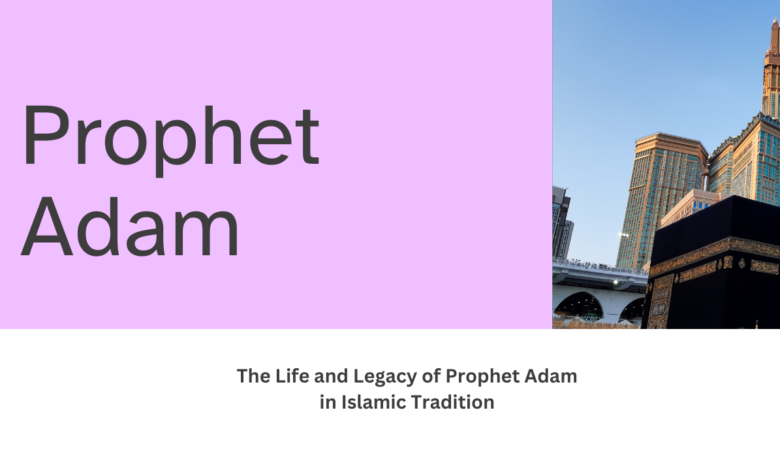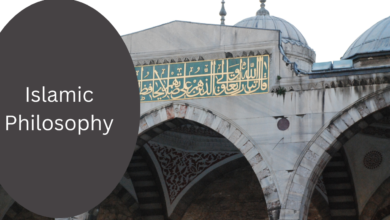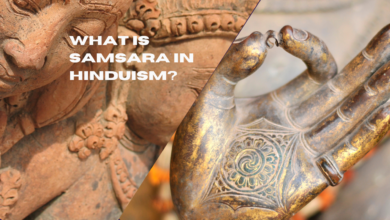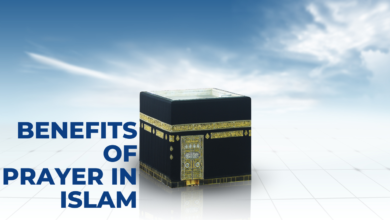
Prophet Adam
Prophet Adam is considered the first human being and the first prophet in Islamic tradition. He is believed to have been created by Allah and placed in the Garden of Eden.
Introduction
Prophet Adam, known as the first human being in Islamic tradition, holds a significant place in the religious narratives of Islam, Christianity, and Judaism. His story not only marks the beginning of humanity but also carries profound theological and moral lessons. In this article, we will delve into the life, creation, and legacy of Prophet Adam as depicted in Islamic tradition.
The Creation of Prophet Adam
Islamic tradition describes the creation of Prophet Adam in a manner distinct from the narratives found in other Abrahamic faiths. According to the Quran, God created Adam from clay or “salsal” (Quran 38:71). This divine act of creation illustrates the unique position Adam holds as a human being.
Adam’s creation was a miraculous event, as God breathed His spirit into Adam, making him a living being. This act of God’s direct involvement in creating humanity underscores the sacredness and purpose of human life in Islam. Unlike other creatures, humans are imbued with intellect, free will, and a moral compass, which they are meant to use responsibly.
Adam and Hawwa (Eve)
Prophet Adam was not alone in his creation; he was soon joined by Hawwa (Eve), who was also created from clay. The Quran narrates that Adam and Hawwa were the first human couple, chosen by God to inhabit the Earth. Their union is celebrated in Islam as the foundation of human civilization and the family structure. According to Islamic tradition, they were created as complementary partners, helping and supporting each other in their shared journey on Earth.
Also Check
- How Many Prophets in Islam?
- Who is Prophet Musa
- Charity As Taught by Quran and Prophet Muhammad (PBUH)
- When was Islam Founded?
- What is Shirk Islam?
Adam’s Obedience and the Garden of Eden
The story of Prophet Adam includes a significant test of obedience in the Garden of Eden. God granted Adam and Hawwa access to everything in the garden except for one tree. This tree represented a test of their obedience, a choice between submission to God’s command or disobedience.
Regrettably, they both ate the forbidden fruit due to the deception of Iblis (Satan), who lured them into sin. After recognizing their mistake, Adam and Hawwa turned to God in sincere repentance, which exemplifies an essential Islamic concept: human beings are prone to error, but through sincere repentance, they can find God’s forgiveness and mercy.
Prophet Adam as the First Prophet
In Islamic tradition, Prophet Adam is also revered as the first prophet. God taught him the names of all things, making him the first human to possess divine knowledge. He was tasked with delivering God’s guidance and wisdom to his descendants. This role of prophet-hood has been passed down through successive generations of humanity, with different prophets chosen to guide their people according to their time and place.
Adam’s Legacy
Prophet Adam’s legacy in Islam extends beyond his role as the first prophet. He is regarded as the father of all humanity, emphasizing the interconnectedness of all people and the shared origin of human beings. His story serves as a reminder of the universality of human experience and the potential for moral growth and spiritual development.
Conclusion
The story of Prophet Adam in Islamic tradition is not just a historical account but a profound narrative filled with spiritual, moral, and theological insights. It emphasizes the sacredness of human life, the significance of obedience to God’s commands, and the potential for redemption through sincere repentance. As the first prophet and the father of humanity, Adam’s legacy continues to be a source of inspiration and guidance for Muslims around the world, reinforcing the principles of faith, humility, and the pursuit of righteousness.
(FAQs)
Who was Prophet Adam?
Prophet Adam is considered the first human being and the first prophet in Islamic tradition. He is believed to have been created by Allah and placed in the Garden of Eden.
What is the significance of Prophet Adam in Islam?
Prophet Adam holds a significant place in Islam as the first human and the father of all humanity. His story serves as a foundational element in understanding the creation of human beings and their role on Earth.
What is the story of Prophet Adam’s creation?
According to Islamic tradition, Allah created Prophet Adam from clay and breathed His spirit into him, making him the first human being.
What role did Prophet Adam play in the Garden of Eden?
In the Garden of Eden, Prophet Adam and his wife, Hawwa (Eve), were granted a paradise to live in. They were allowed to enjoy its blessings but were given one command not to eat from a specific tree.
What is the story of Prophet Adam and the forbidden tree?
Prophet Adam and Hawwa were tempted by Satan and ate from the forbidden tree. This act led to their expulsion from the Garden of Eden and their entry into the earthly realm.
What lessons can be learned from the story of Prophet Adam?
The story of Prophet Adam teaches important lessons about obedience to Allah’s commands, the consequences of disobedience, and the inherent free will and potential for both good and evil in human beings.
How many children did Prophet Adam and Hawwa have?
Prophet Adam and Hawwa are believed to have had many children, including sons and daughters, from whom all of humanity descended.
Are there any specific teachings or guidance from Prophet Adam?
While Prophet Adam’s story primarily serves as a historical and foundational narrative in Islam, his experience highlights the importance of seeking forgiveness and guidance from Allah when we make mistakes.
Are there any specific rituals or practices associated with Prophet Adam in Islam?
There are no specific rituals or practices associated with Prophet Adam, but his story is often shared and reflected upon to emphasize the significance of following Allah’s guidance and seeking His forgiveness.
Is there any mention of Prophet Adam in other religious traditions?
Yes, the story of Prophet Adam is also present in Judeo-Christian traditions, where he is considered the first man. However, there may be variations in the details and interpretations of his story in different religious texts.




